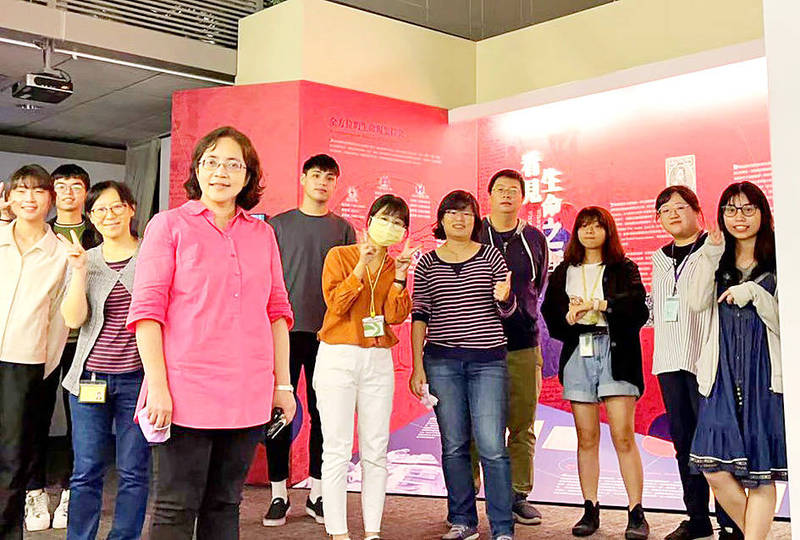《TAIPEI TIMES》 Long COVID anxiety may be linked to FKBP5 gene

National Yang Ming Chiao Tung University professor Lee Yi-hsuan, front, poses for a picture with members of her research team in an undated photograph. Photo courtesy of National Yang Ming Chiao Tung University
PEER REVIEWED: Researchers found anxiety in mice linked to the deactivated FKBP5 gene, which a news release said might explain the long COVID symptom
/ Staff writer, with CNA
Researchers have found that long COVID-induced anxiety could be linked to a deficiency in the FKBP5 gene.
Anxiety is often part of long-term health problems induced by COVID-19 and might be linked to a deficiency in the gene, which regulates the activity of stress hormone receptors and plays a critical role in mental disorders, a team of researchers at National Yang Ming Chiao Tung University (NYCU) and Taipei City Hospital found, the university said in a news release.
The team from the university’s Institute of Physiology and the hospital’s Department of Psychiatry inoculated mice in a laboratory with lipopolysaccharide — a toxic chemical commonly found on bacterial cell walls that causes temporary loss of appetite and weight — to stimulate an inflammatory response, the news release said.
The mice were then observed over several days, it said.
The researchers found that mice in which FKBP5 had been deactivated showed behaviors that indicated anxiety after their inflammatory symptoms had eased, it said.
The immune system and microglia in the brain’s hippocampus are normally activated to combat inflammation when detecting a foreign toxin in the body, but that was not observed in the mice who had the gene deactivated, the school said.
Inflammation can activate the hypothalamic-pituitary-adrenal axis, enabling the FKBP51 protein, which is encoded by the FKBP5 gene, to increase in number, Lee Yi-hsuan (李怡萱), a NYCU professor and leading researcher in the project, is quoted as saying in the news release.
That initiated a series of molecular mechanisms that inhibit neural activity that stabilizes emotions, Lee said.
“However, knocking out the FKBP5 gene prevents the molecular pathway from functioning normally as a mood stabilizer, leading to anxiety,” she said.
The hypothalamic-pituitary-adrenal axis is a major neuroendocrine system that controls reactions to stress, and regulates many processes in the body.
Although the relationship between the gene and long-COVID-induced anxiety requires further investigation, the study highlights a molecular mechanism involving FKBP5 in inflammation-induced anxiety, the news release said.
The team in June published its findings in an article titled “FKBP51 mediates resilience to inflammation-induced anxiety through regulation of glutamic acid decarboxylase 65 expression in mouse hippocampus” in the peer-reviewed Journal of Neuroinflammation.
新聞來源:TAIPEI TIMES



















